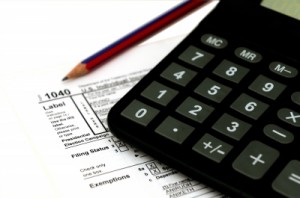 Inheritance tax is paid if a deceased's estate is worth over £325,000 at the time of death. The figure of £325,000 is known as the 'inheritance tax threshold'. Any amount above the threshold will be liable to inheritance tax at the rate of 40%.
Inheritance tax is paid if a deceased's estate is worth over £325,000 at the time of death. The figure of £325,000 is known as the 'inheritance tax threshold'. Any amount above the threshold will be liable to inheritance tax at the rate of 40%.
There are some simple ways in which assets, including your house, can be passed on free of inheritance tax. This excellent and easy-to-read inheritance tax guide (written by award-winning financial planners) tells you how.
Avoid paying unnecessary inheritance tax
The Inheritance Tax Guide written by award-winning, independent, chartered financial planners. It will guide you through everything you should be doing now to eliminate inheritance tax.
Download the free guideWho will calculate if there is any inheritance tax liability?
If there is a will then the executor or administrator of the will normally deal with the calculation of any liability to inheritance tax. If there is no will then the next of kin will have to deal with this issue.
Whoever is dealing with the deceased's estate will have to apply for a ‘grant of representation' to have the legal right to deal with the estate. Part of this process is to complete an inheritance tax form valuing the estate, this will decide if any tax is due.
Any inheritance tax due will need to be settled prior to the granting of probate which gives the legal right to distribute the deceased's assets.
Who actually pays any inheritance tax?
Either the executor of the will or the administrator of the estate will settle any inheritance tax due from the estate prior to distribution of any assets to the beneficiaries.
If you are in receipt of an inheritance you would not normally be liable to pay inheritance tax. However, you could be liable to pay inheritance tax on gifts received from the deceased within the 7 years prior to their death.
An estate is exempt from inheritance tax if the deceased left everything to the their spouse or civil partner living permanently in the UK.
If an estate is worth less than the inheritance tax threshold of £325,000 (2016) then any unused allowance can be passed on to a spouse or civil partner resulting in a total inheritance tax threshold of up to £650,000 for married couples or civil partnerships.
Is there a deadline for paying inheritance tax?
Inheritance tax has to be paid within six months from the date of death. If unpaid within this period then the estate will be liable to pay interest on the amount due.
It is possible to pay inheritance tax over a period of up to ten years for assets that are particularly difficult to sell. This would typically be property, shares or other business assets.




